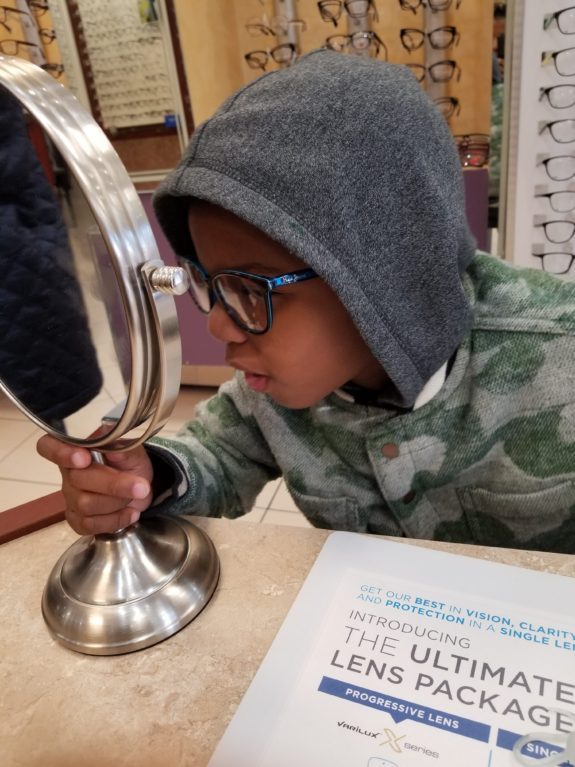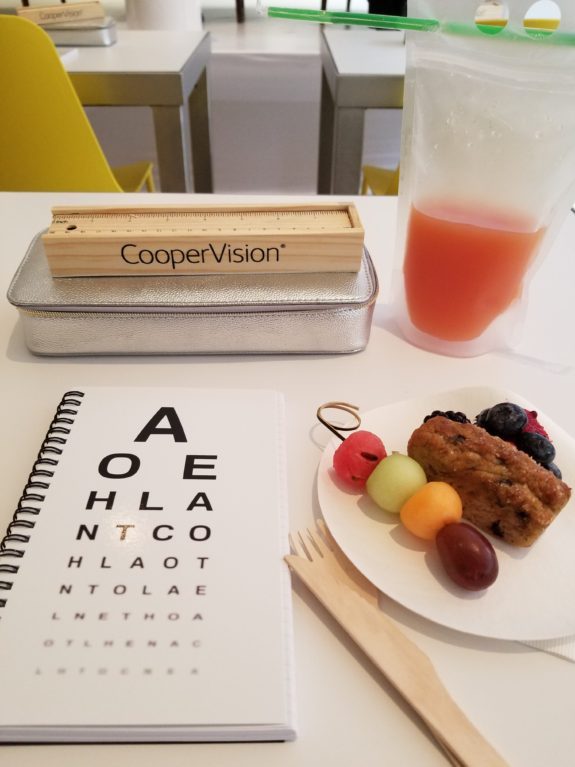Did you know that 1 in 4 children in the U.S is myopic? Not sure what myopic means? Well, you’re not alone. According to The Harris Poll released earlier this week by CooperVision, only 33% of parents know what that term means. In fact, more parents know more about lice than myopia. For the uninformed, it means short-sightedness or nearsightedness.

Myopia occurs when the eyeball is too long, relative to the focusing power of the cornea and lens of the eye. This causes light rays to focus at a point in front of the retina, rather than directly on its surface. Meaning, for people with myopia, things from a distance tend to look blurry. Generally, myopia first occurs in school-age children and progresses until about age 20. The condition is caused by genetics, lifestyle or a mix of both.
The Harris Poll also found that not only are people unaware of myopia, the condition is becoming more widespread than ever before and its severity has intensified too. Moreover, two-thirds of eye care professionals have seen an increase in pediatric myopia in their practice over the last 5 to 10 years. Not exactly good news, right?
While it’s clearly a major concern for parents, there are several ways to protect children’s eyes to hopefully reduce the number of myopia patients. Recently, I attended a panel discussion (moderated by Melissa Gerstein of The Moms) on myopia where I learned all about the condition, as well as tips and advice for keeping our kids’ eyes as healthy as possible.

Here are my three biggest takeaways:
- Limit screen time: Studies show that too much time on electronic devices is not ideal for children. Data from 145 studies covering 2.1 million participants revealed that increases in myopia are driven principally by lifestyle. Is it ok for them to use the latest tech gadgets? Of course. However, balance is key.
- Get kids active again: Things have changed from when I was a kid. My friends and I used to play outside all the time. Times change and today’s children are indoors more often than not, which isn’t healthy. Researchers suggest that myopia progression may be caused by light levels, which may be directly related to how little time kids spend outdoors nowadays.
- Don’t skip eye exams: Life is hectic and we moms let some things slip through the cracks. Annual eye exams can’t be one of them. Get your child screened every year to ensure that their eyes are functioning properly and there aren’t any problems. In many cases, kids don’t know how to articulate that their vision isn’t clear. Plus, there aren’t always visible signs or symptoms that hint to vision issues. Get them screened!
Does your child have myopia? If so, how has your experience been?




Great information for parents. My friend didn’t realized she need it glasses until she was 13 yrs old, she though everybody was seeing blurry so she never complain. She was sock when she got her first pair of glasses.